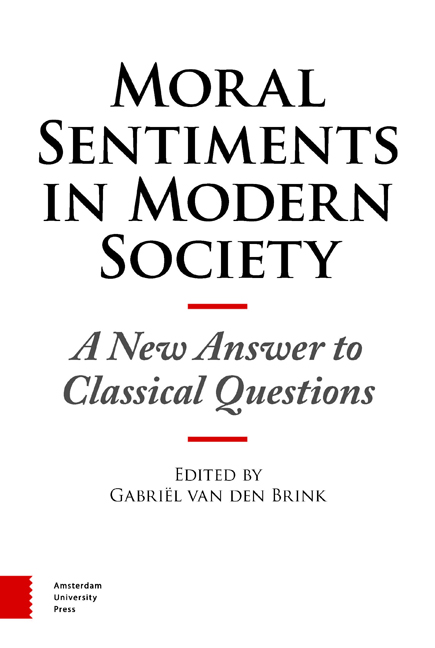Book contents
6 - Changes in Norms and Values
Published online by Cambridge University Press: 02 February 2021
Summary
In this chapter we argue that moral values in modern Dutch society have not disappeared but rather changed. This change is clearly visible if we compare today's society with that of a few decades ago. We already focused on the negative aspects of this change in previous chapters. Here we would like to emphasise the positive developments that have taken place, for example the greater equality between men and women, and the increased focus on individual responsibility and self-development. From this we can infer that what has changed over the years is primarily the content of our moral sentiments. Such a change in the content of morality does not occur out of the blue, of course; our contention is that it ensued from the gradual modernisation of society. This is in any case the hypothesis that we will be testing in this chapter on the basis of empirical survey data.
We are certainly not the first to study the relationship between changes in values and modernisation. A well-known and widely used theory on (post-)modernisation is that of Ronald Inglehart. Below, we present the main ideas of this theory. We then analyse whether the theory applies to the Netherlands and if so, to what extent. Most of the empirical data we use here is derived from the European Values Study (EVS), a large-scale research project that has been conducted every nine years from 1981, offering insights into key developments over the last thirty years. Because the EVS is conducted in all countries within Europe, we can compare the data for the Netherlands with the rest of Europe. This is relevant because national contexts play a crucial role, particularly with regard to values. The survey includes many questions that reveal how respondents perceive matters such as religion, work, politics, leisure, health and family life. It thus constitutes a unique source for our research.
We begin with a brief outline of Inglehart's view of the process of modernisation (section 1). We also assess the position of the Netherlands vis-a-vis other European countries (section 2). Then we look at how the values of individual Dutch citizens have changed in recent decades (section 3) and which values experienced the most significant change (section 4).
- Type
- Chapter
- Information
- Moral Sentiments in Modern SocietyA New Answer to Classical Questions, pp. 193 - 224Publisher: Amsterdam University PressPrint publication year: 2016



